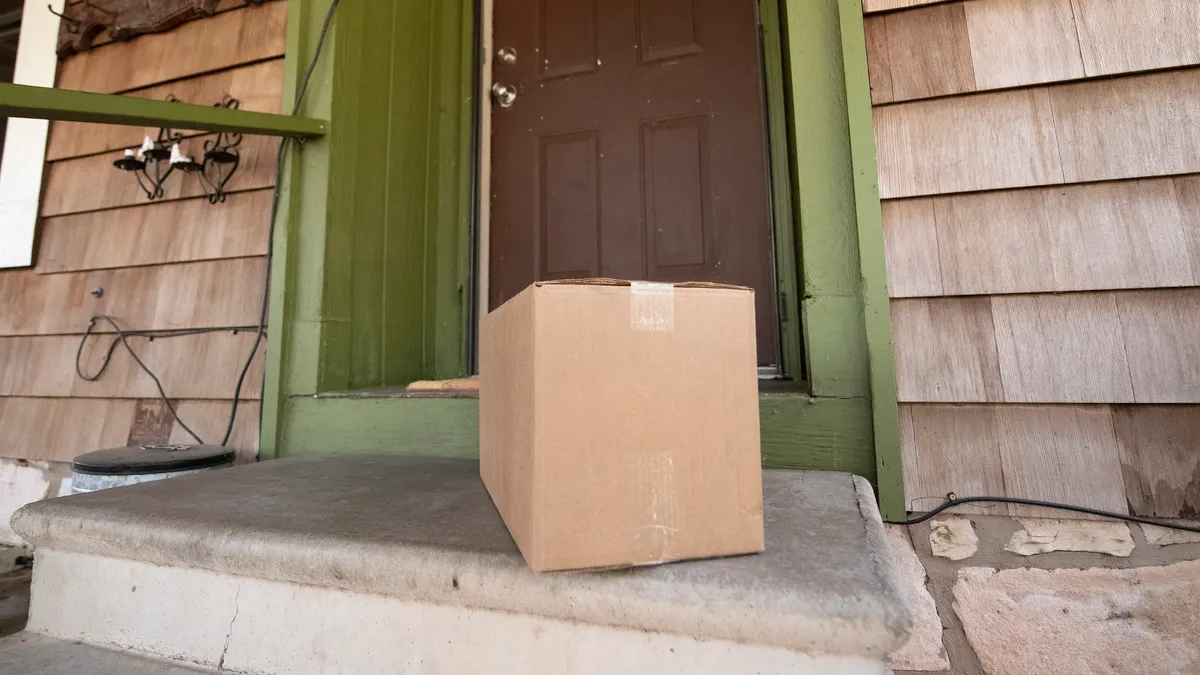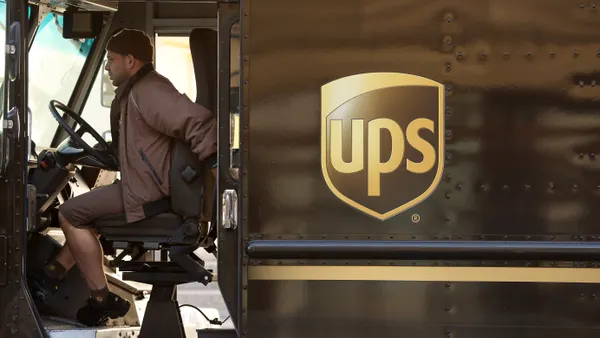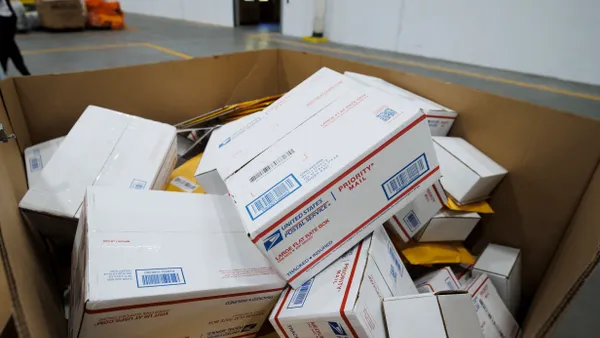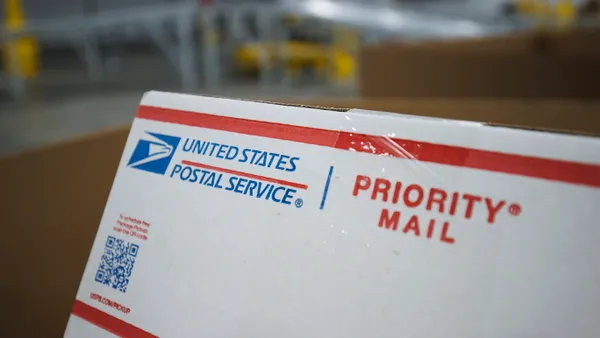Dive Brief:
- The Frontdoor Collective (FDC) plans to launch in about 50 markets by 2023 as it aims to demonstrate the growth potential of its franchise delivery model, a company executive said in an interview Thursday.
- The e-commerce-focused last mile delivery provider currently serves the Pittsburgh, Boston, Philadelphia and Houston markets, said Rick Hernandez, senior vice president of sales and business development. It plans to expand to Southern California and Arizona in about two weeks.
- The FDC relies on franchisees to make deliveries, unlike FedEx Ground and Amazon, which use contracted service providers. "We're not creating this antagonistic relationship between management and labor — we're aligning the incentives," Hernandez said.
Dive Insight:
FedEx Ground and Amazon have proved their independent contractor models can scale quickly while remaining flexible, Hernandez said. But as some contractors clamor for better terms, the FDC is out to prove the franchisee model is both scalable and sustainable for carriers.
"You've got entrepreneurs who aren't just focused on their patch," Hernandez said. "They share notes with each other. They give each other guidance because they're stakeholders in The Frontdoor Collective. It's not just, 'I want to run my business.' They want to see it become a huge, scalable model."
The FDC currently has about 95 franchisees who have signed up to make deliveries, with another 300 ready to do so, Hernandez said. The company requires its franchisees to "own an active delivery company in the requested territory and have successfully operated through at least one peak season," per its website. The company is looking for franchisees with previous experience at either FedEx or Amazon, Hernandez added.
"You need franchisees who are skilled at hiring and firing — that's the biggest skill that we have in the space," he said.
The FDC's target customers include companies that consolidate customer shipments for U.S. Postal Service delivery — those "who've worked with the Postal Service who are frustrated with them," Hernandez said. Additionally, the FDC is interested in large brands and retailers with their own distribution centers and logistics capabilities, along with smaller customers like meal kit companies that prioritize on-time and damage-free delivery.
The FDC's expansion comes as FedEx Ground is facing a public campaign by Spencer Patton, a large contractor who Ground terminated its agreements with in August, to provide better financial terms for the 6,000 contractors in its network. Patton has advocated for Ground to provide franchise-like benefits and floated the possibility of a legal challenge to reclassify contractors as franchisees.
“The franchiser has to report on the health of their franchisees, they have to disclose the failure rates and franchisers also can’t make 30-day notice contractual changes,” Patton said in an August email. “There are much greater state and federal protections for a contract with a franchisee and we as contractors don’t enjoy that.”
But both FedEx Ground and Amazon have plenty of incentive to retain the services of the independent businesses that power their delivery networks. FedEx said in its lawsuit against Patton’s company, Route Consultant, that competitors "have sought to exploit" his campaign in order to acquire existing Ground customers. Amazon announced last week a new initiative that provides Delivery Service Partners funding to give their drivers access to various academic programs.
"They've run circles around everybody else," Hernandez said of Amazon's last mile delivery model. "But the more important thing is doing it in a way that's sustainable from a franchisee perspective. It's aligning the interest of the entrepreneur and the merchant to deliver a superior customer experience."













